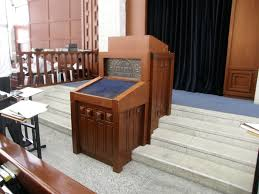As much as I like road trips, I've probably driven my last one. The route took my odometer up some 1880 miles over a week, traversing five states with two destination stops and two overnight motel rests. My one-day behind the wheel capacity now seems to be a bit over 400 miles, considerably less than in my 20s when school took me from the East Coast to school in the midwest about twice a year. If my sleep pattern as a Senior is interrupted in my own bed, the motel beds do not do much better.
Wednesday, August 28, 2024
Too Much Driving
As much as I like road trips, I've probably driven my last one. The route took my odometer up some 1880 miles over a week, traversing five states with two destination stops and two overnight motel rests. My one-day behind the wheel capacity now seems to be a bit over 400 miles, considerably less than in my 20s when school took me from the East Coast to school in the midwest about twice a year. If my sleep pattern as a Senior is interrupted in my own bed, the motel beds do not do much better.
Friday, August 23, 2024
On the Road
Full backpack, full duffle. Extra tote bag. Portable comforts of home while traveling along with some comforts not at arm's lengths at home. It took nearly two days driving to arrive in Nashville, my first venture anywhere in Tennessee. Very pleasant hotel with a treadmill more sophisticated than mine. A breakfast buffet well above the economy hotel grab-and-go that I am used to. And a pool, a slightly chilly experience for late summer in a southern destination. Don't have these at home.
Sunday, August 18, 2024
Travel Week
Making a list and checking it twice. Leaving on a road trip at mid-week. Looked forward to it immensely as I juggled the travel options, let my wife select among them, and then made the hotel reservations just over a month ago. No air travel, no car rental. Just time on the highways with some diversions off the highways to places I've not visited before. And wife at my side. The challenge of exploration peaked quickly, then waned. Doubts emerged. Right places? Enough time at each designated stop. Best use of limited destination time? I'm comfortable with what I have arranged. Like most projects, the start comes with anticipation, the end with eagerness, but the middle drags. I am emerging from that middle.
Friday, August 16, 2024
Expensive Dining
My in-laws dined out once a year, on their anniversary. They always went to the same restaurant, the most famous in their city at the time. When I first met them, they had moved to the suburbs just past the city limits, while the restaurant established itself in the oldest district of the city near the waterfront. My father-in-law disliked driving, which was a considerable imposition in that part of the city most of the time. They took a taxi round trip. We never knew what they ate.
Tuesday, August 13, 2024
Learning Musaf
My turn on the Bimah at my present shul comes about three times every two months, estimated eighteen times a year, though I do not keep count. The office manager or IT maven keeps electronic copies of the weekly Shabbos bulletin, so I could figure out how many by imposing on them. Or I rarely deplete the electronic newsletter that comes from the congregation every Thursday evening, so if I really wanted to know how many times I take my turn leading something, I could figure it out. Three events every two months seems a reasonable estimate. In recent years my assignments have been to lead Shacharit, the Morning Prayer, and to take my turn when the synagogue's men chant the weekly Torah portion. About three times a year, the Gabbai will invite me to chant the Haftarah. In another era, I did a chapter of Esther, but discontinued that when I took a job that would not allow me to return to repeat my chapter the next morning. And I've done a chapter of Ruth one time. Nearly all are Shacharit and Torah presentations.
Wednesday, August 7, 2024
Rationalizing Rejection
Some disheartening events. One major betrayal, I think, or at best insensitivity by people who I expected to serve as my advocates. My best work submitted and turned down. What I thought was going to be outreach to my mind ended up being a pitch for a large bequest. My own synagogue registers as less welcoming than six months ago. No real damage from any of this. In fact, some may have acted in my interest in an unappreciated way, helping me dodge a very big bullet in my later years, though in a manner that would have greatly impeded me professionally at mid-career. With these, and more, I understand my role is to serve as a tool for the organizations that had not treated me the way I had anticipated. I get it. No inclination on my part to seek reprisal other than eliminating some places from the bequest section of my will.
Monday, August 5, 2024
Writing a Short Story
Friday, August 2, 2024
Skipping Services
Shuled out one more time. Or really more wanting to avoid the place and its people. It's not been my best experience of late/ Feeling imposed upon in some aspects, ignored or marginalized in others. Moreover, I have something of relative importance to do there next shabbos assigned to me under less than my preferred circumstances. Not stayed home on a Saturday morning in a while. This time I pondered whether to drag myself there or give myself the shabbos off.
I looked at the program that comes to me passively online every Thursday. Very long Torah reading, longest of the annual portions, though done with professionalism by our hired Cantor. Rabbi away. Ex-President, one who irritated me during his tenure, giving the sermon. He doesn't give an inept presentation, though hardly worth the special trip. Regulars doing most of the service, one always expertly, other two above threshold. None creating an expectation of special. Within standard, not a lot above or below. At the end, announcement of birthdays. Conduct of Saturday morning business would be an apt summary of my expectation.
Nothing inspiring, nothing challenging. I would essentially be punching my Jewish clock. Sitting politely. Getting my weekly 10 ml of scotch when it's done.
Most weeks I feel more engaged. Sometimes as participant, sometimes as admirer of what the Rabbi or his surrogate puts together. An admirer of the talent of people who execute their portions especially well. We have an impressive number of congregants who can do that. We also have some who have not endeared themselves to me. I also have encounters extraneous to shabbos that leave either a favorable or unfavorable impression. Shabbos is about separation. The impression does not always separate. This week it does not, nor does it have another form of offsetting some unhappy recent vibes.
Take the weekend off. Reset for the Board Meeting during the week, prepare my upcoming Torah reading so that I can be proficient for my turn next week. Best alternative.








